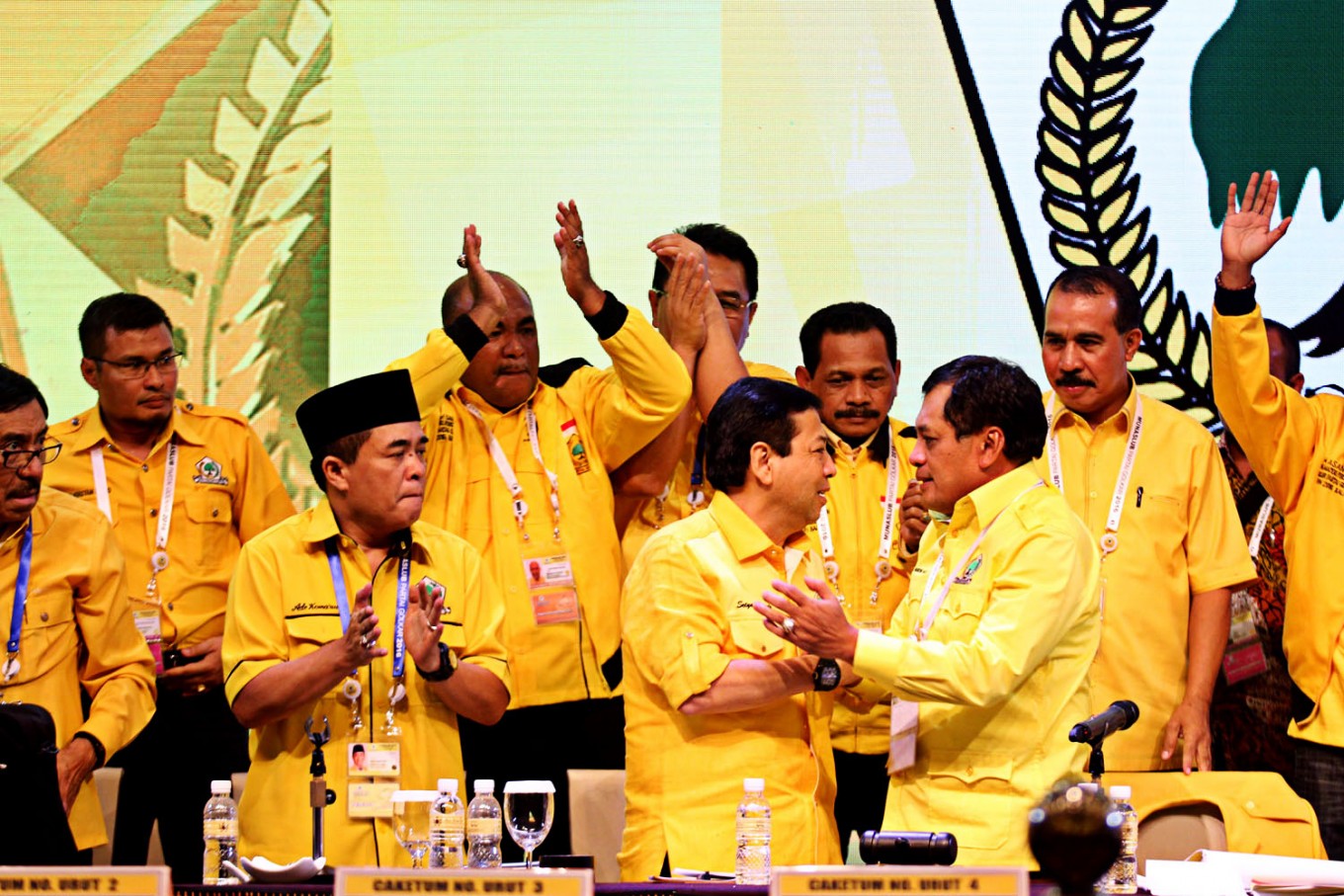Popular Reads
Top Results
Can't find what you're looking for?
View all search resultsPopular Reads
Top Results
Can't find what you're looking for?
View all search resultsGolkar agrees to push up electoral threshold
The Golkar Party supported an increase of the parliamentary threshold to become 7-10 percent from 3.5 percent currently, a party lawmaker has said.
Change text size
Gift Premium Articles
to Anyone
T
he Golkar Party supports an increase in the electoral threshold to 7 to 10 percent from the current 3.5 percent, a party lawmaker says.
“A higher would strengthen our democratic system and simplify political decision-making," Tantowi Yahya said in Jakarta on Friday.
Previously, NasDem Party chairman Surya Paloh proposed an increase in the threshold to 7 percent.
"If the electoral threshold was 7 percent, hopefully only the most popular parties would be eligible to run in the next election. This carries a consequence, but for a greater good, why must we be afraid?" Surya was quoted as saying on July 20 on the party's website.
According to Law No. 8/2012 on elections, the electoral threshold – the minimum percentage of the vote required to get seats in the House of Representatives -- is at 3.5 percent.
Golkar tried to push up the threshold to 7 to 10 percent in the revision of the law, but the Democratic Party, which was the largest party at that time, rejected the proposal.
In the 2009 election, the Democrats gained 20.85 percent of the vote, which made it the leading party. The Golkar Party followed in second position with 14.45 percent of the vote, while then-opposition Indonesian Democratic Party of Struggle was at the third place with 14.03 percent.
The 2014 election, with a 3.5 percent threshold, resulted in 10 political parties with House seats. “With only four to five party factions at the House, the decision-making would be easier,” Tantowi said. (bbn)










